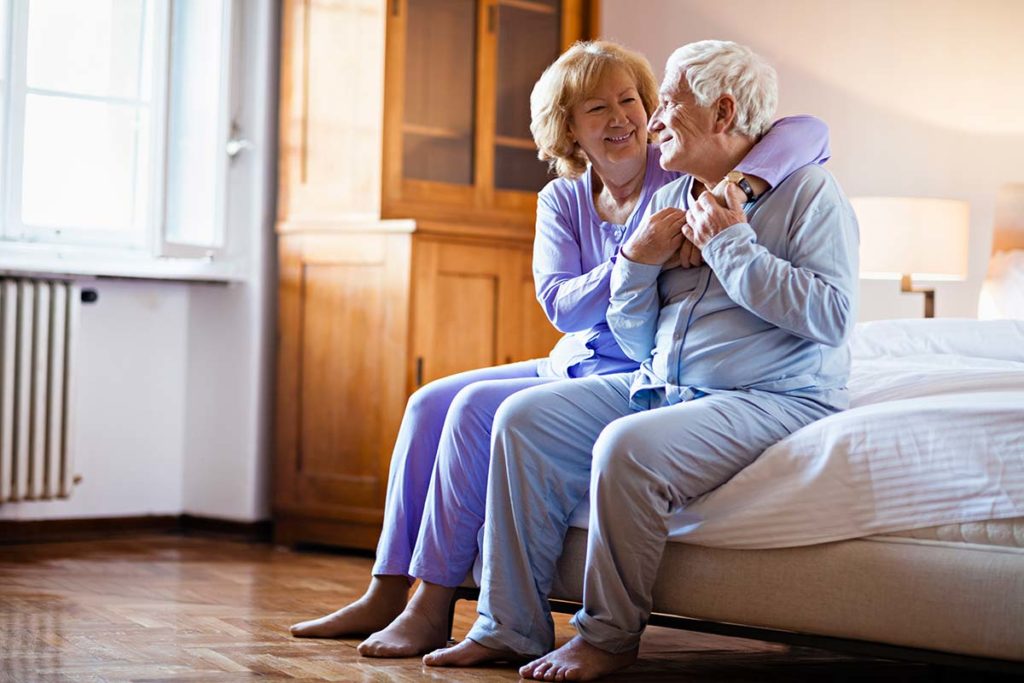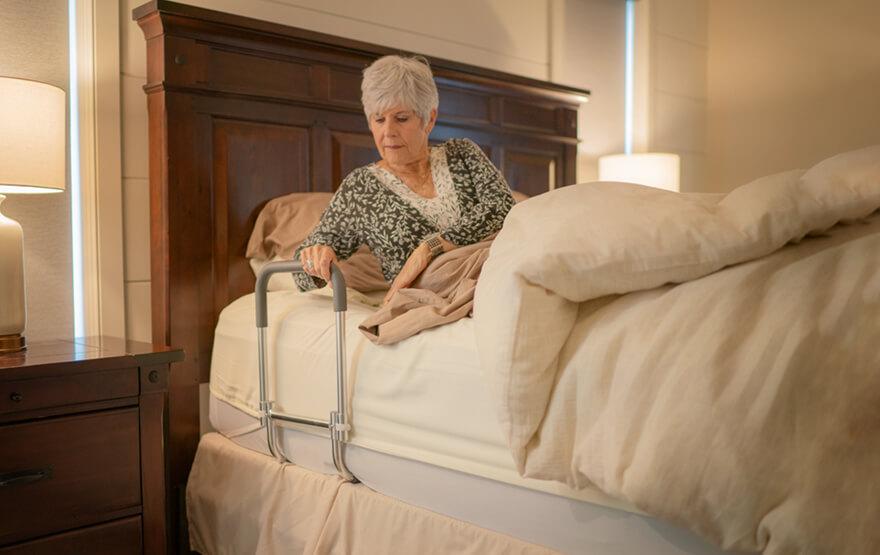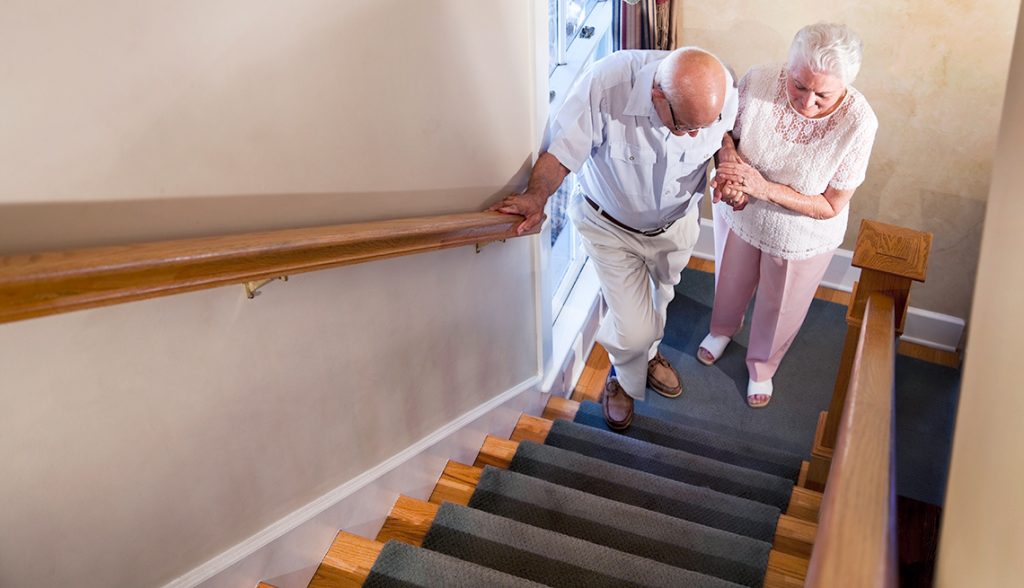It’s no secret that as we age, our homes need to change. We may not be able to reach things like before or want to do some of the work around the house. Luckily there are plenty of ways you can make your home safe for aging parents, and it doesn’t have to cost much! Here are eight easy steps you can take today:

1) Remove everything from low shelves so there is more room for people who can’t bend down easily.
2) Install handrails on both sides of any stairs in your home (even if they don’t lead anywhere).
3) Make sure all electrical cords are out of walkways or secured with zip ties.
4) Purchase a grabber tool with an extendable arm to help your parents pick things up off the floor or ground.
5) Place night lights throughout your home.
6) Keep extra lightbulbs in a drawer or cupboard so they aren’t searching for them in dark hallways at night.
7) Place lots of electrical outlets in easy-to-reach locations, especially near bedside tables (and replace any that are worn out).
8) Make sure all furniture has good footing and will not tip over easily, like sturdy coffee tables for example. Be creative with things around your house! We hope these tips can help make your parents feel safe and comfortable in their homes!
Live Like A Sponge And Keep Your Home Safe For Aging Parents
Keeping your parents’ home safe can be overwhelming. You have enough on your plate getting them to appointments or making sure they don’t total their car after hitting a patch of black ice.
But there are at least 100,000 fall injuries every year in people over 65*, and broken hips are among the most serious because they often require surgery with lengthy recovery times.
To keep our aging parents safe , we have taken some steps that both ease our minds and allow us to remain caregiving advocates while attending to the other responsibilities in our lives.
One thing I did was shop for an apartment near my house so I could easily help my mom out when necessary, without having to drive across town every time she calls for some assistance or advice with her computer.
This also gives me the chance to check in on her place frequently to make sure she’s careful with what she is doing or not doing. Here are some tips I have compiled, which you can adapt for your own parent-ren:
1) Take all dangerous items out of lower shelves and countertops that they could pull down onto themselves if they were to lean in too far.
2) Install grab bars either side of any stairs, even if they’re just decorative, like these gorgeous vintage brass ones .
3) Make sure electrical cords are out of walkways (or use zip ties to cinch them up).
4) Purchase a grabber tool with an extendable arm so older folks don’t have to bend or stretch to pick up things off the floor.
5) Add night lights throughout your parent’s home so they can see their way at night. I also recommend a flashlight in every room with a temporary bulb so you don’t have to dig one out of a drawer if they happen to be walking around in the dark and stub their toe on something.
6) Keep extra lightbulbs in a drawer or cupboard so they aren’t searching for them in dark hallways at night.
7) Place lots of electrical outlets in easy-to-reach locations, especially near bedside tables (and replace any that are worn out).
8) Make sure all furniture has good footing and will not tip over easily, like sturdy coffee tables for example. Be creative with things around your house!
9) If you live in a climate where cracking windows or doors is necessary to keep the home from being too stuffy, add window alarms so they don’t get locked out accidentally.

10) Keep an eye on heating and cooling bills. This handy tool helps you figure out what temperature it’s comfortable to be at during different times of the day, and will help make sure the electricity bill doesn’t go through the roof this winter as well as next summer.
It can be tough balancing between saving money and maintaining comfort levels when two people are living under one roof – as may soon become the case with some adult children caring for their elderly parents.
11) If your parent is driving, they may need to lower their speed on the highway. This will reduce the risk of accidents and allow them to keep driving for longer .
Here’s a resource that can help determine if they are eligible for new driver testing in their state (some states do offer this service free of charge). This tool is useful in figuring out what services you can provide yourself for an older adult who is still driving but shouldn’t be.
12) Talk to your loved ones about any living wills or advance directives so they know where everything is located when it comes time for seniors to transition into health care facilities, assisted living communities, or with family members who are willing and able to take them in.
13) If there are clearly dangerous or hazardous objects in the home, look into getting them locked away so you don’t have to smell gas leaks or worry about your parent falling over things they can’t see properly due to cataracts for example.
14) Make sure someone is always within calling distance of the older folks at all times, just in case an accident happens while you’re not around. I’m glad I did this after my dad fell and broke his hip while I was at work one day.
15) Ask if they need help with any repairs before doing them yourself, since some may be unsafe. This is true when it comes to rewiring outlets , hanging pictures , adding lighting fixtures , or even your parent’s wardrobe.
16) Get a pair of slip-resistant socks for them to wear around the house – they’re great for added traction on slippery floors, and are especially useful in bathrooms. Photos courtesy of Dorman Products .
17) Make sure there is plenty of space throughout their home; this will allow them to move more easily if they need to go from one area to another (like via wheelchair).
If you see that they may be bumping into things like end tables , consider moving them out of the way and/or adding some additional lighting, which could help your loved ones avoid any injuries.
18) Turn down the heat at night so it doesn’t get too warm.
19) Install motion detectors or a gate at the top of the stairs for added safety.
20) Install a loud alarm on your parent’s bedroom door so they can easily push it open if necessary but won’t have to fumble with keys or lock picks in the event of an intruder.
Ideally, you should search high and low for a product that includes both a loud alarm as well as a keyless entry pad so older adults don’t need any assistance from anyone else if they need to call for help (if they’re locked inside their room, for example). I recently had this feature installed and love how my front door opens up with just one touch of my finger!
21) Add large-print numbers above electrical outlets .
22) If things like cabinets are hard for your parent to reach, consider installing simple bar handles instead of knobs; this will make it easier for seniors to open them without straining their backs.
23) If someone has arthritis or any kind of hand pain , you might want to purchase some rubber jar openers . These work great on glass jars and bottles!
24) Put motion sensor lights in dimly lit areas like the basement, garage, or attic. It’s easy to forget that these areas can be dangerous during the night if there isn’t much light – which is why I love motion lights ! They’re super bright and come with sensors so they shut off automatically within just a few seconds after sensing movement.
25 Put grab bars in the tub and shower; these are super helpful for when your loved ones can’t get in or out of the bathtub, and gives them extra support when they need it most.
26) Keep a supply of non-slip rubber mats and bathmats within reach (especially if you live in an area with snow and ice during the winter). They make great slip-resistant accessories for both home and garden use!
27) A great way to add light in any room is by installing under cabinet lighting . It’s perfect for dark closets , sheds, garages, basements, pantries, etc.
28) You might want to consider buying special fixtures that reduce noise when opening doors or cabinets (I recently got these and love how quiet they are!)
29) And finally, no matter what you do or where you live, make sure there’s always a first-aid kit (and know how to use it!) within reach at all times.
30) There are even special containers that can be placed underneath your older adult’s bed so they have easy access to everything they need if an emergency arises. These help tremendously when looking for things like a flashlight, hearing aid , etc. in the night!
Conclusion paragraph
If you are an aging parent, or have aging parents in your life, it can be hard to keep up with the changes that come with age. Luckily there are many ways to make their homes safer for them so they don’t need to worry about being able to reach things on high shelves or climbing stairs safely.
The eight easy steps we outlined will get you started today! Do any of these sound like something you need? Let us know and our team would love help making your home safe for aging parents too!

